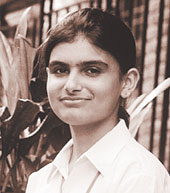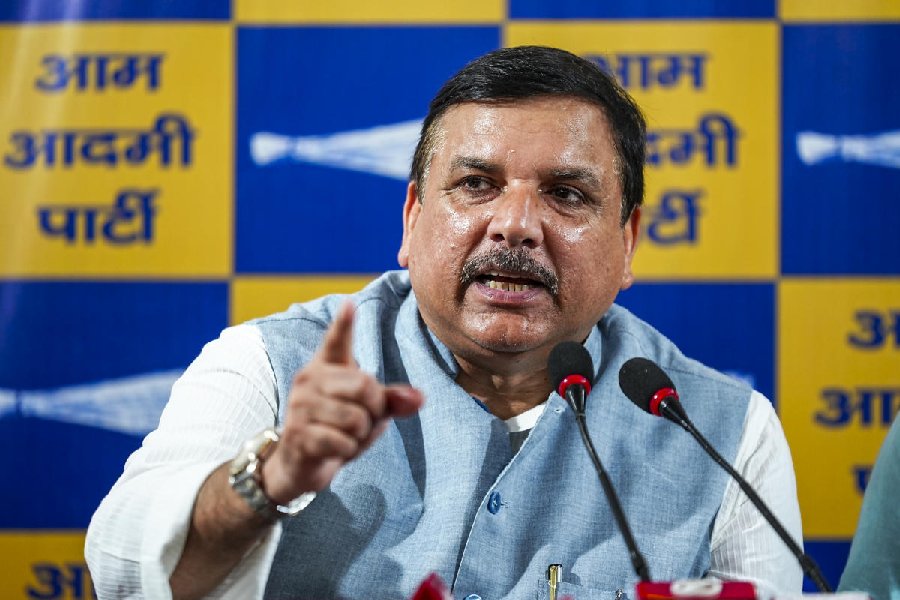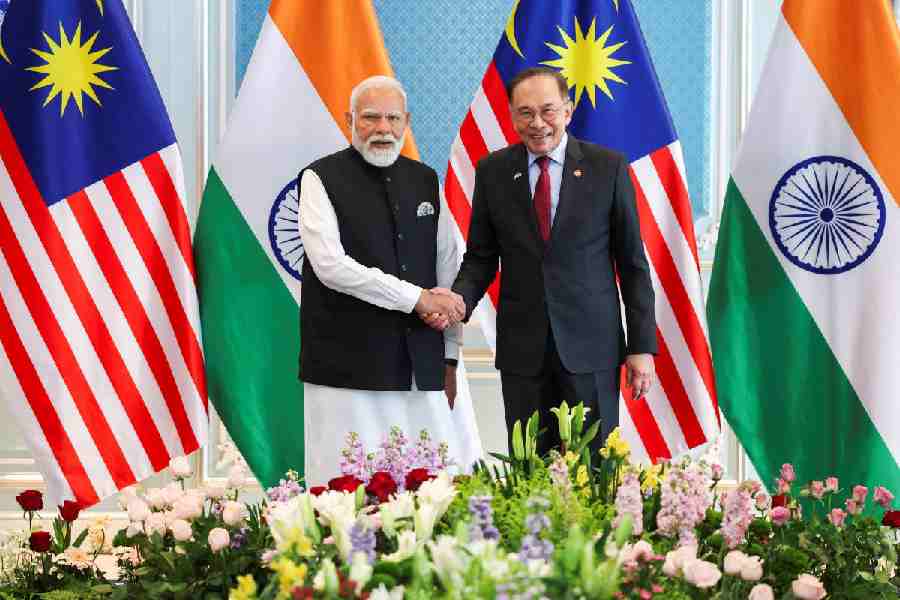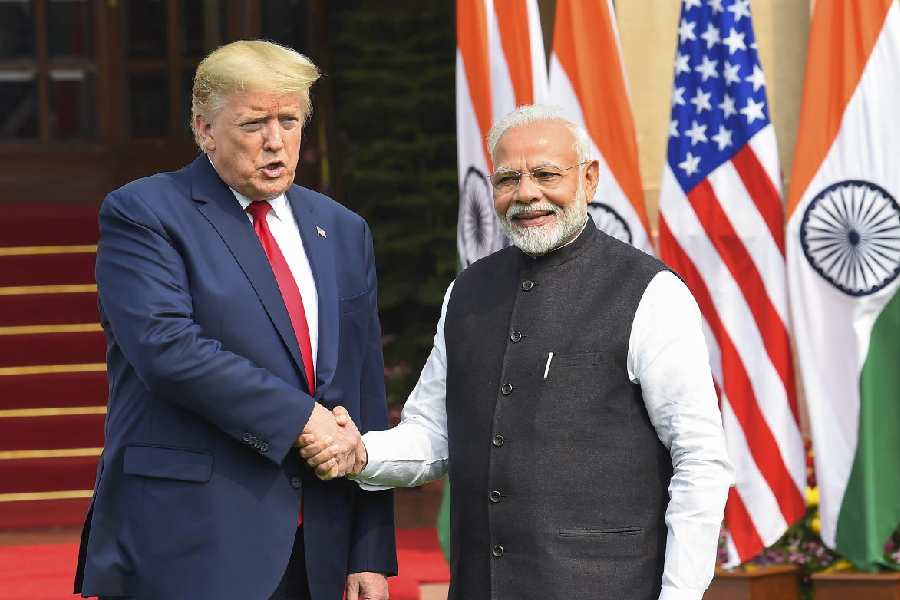 |
 |
 |
 |
| CHILD’S PLAY: (From above) Tanvee Tanjee; Priyanshu Mutreja; Aiswerya Shankar and Kishan Shrikanth |
Kishan Shrikanth sees his film’s opening shot clearly in his mind. Amidst the hustle- bustle of a slum colony, the camera slowly closes in on a small rag-picker. “The film is about this homeless orphan who decides to get an education,” says first-time director Kishan.
Kishan didn’t have to scout around for a suitable child actor. He’s playing the lead role himself. With this film, 10-year-old Kishan will go into the Guinness Book of World Records as the world’s youngest director. Titled C/ Footpath, the Kannada movie will hit the theatres in December.
Direction came by default to the Bangalore-based child actor. Kishan wrote a short story on a street child, which his father happened to narrate to friends. “My friends insisted we make a film on the story and Kishan direct it,” says his father, Shrikanth Rayalu, a commercial tax officer in the Karnataka government.
Clearly, achievement no longer has an age bar. In fact, Kishan is a senior citizen among child prodigies.
Chennai-based Satya Narayanan was barely out of his diapers when he gave his first Carnatic music concert on the keyboard. He was four when he passed Trinity College’s Grade II practical piano exam. At 10, Satya has released two music albums and staged 190 concerts.
At 10, Priyanshu Mutreja was working on the computer as naturally as he was chewing bubblegum. The Limca Book of Records declares the Delhi boy the world’s youngest Microsoft certified systems engineer. At 15, he won a scholarship to study computer science at Valparaiso University in Indiana in the US. He’s now in his second year.
A generation ago, pint-sized prodigies were a rare specimen. “We only heard of Shakuntala Devi and mandolin player U. Shrinivas,” says Dr Ali Khwaja, head, Banjara Academy, a Bangalore-based counselling centre. “Prodigies were seen as uncommon exceptions,” he says.
In generation-next, super kids seem more of a rule. They have gate-crashed into every adult domain. Pick any.
Chennai girl Aiswerya Shankar could convert temperature from centigrade to fahrenheit, identify flags of 151 countries and solve sums in her head when she was five. It won her the National Child Award for Exceptional Achievement in 1999.
Delhi’s dance sensation Tanvee Tanjee was a veteran of 100 Bharatnatyam performances at 10. At 15, Chennai’s Aadhirai was a walking encyclopaedia on the Ramayana. In 2002, 13-year-old Bhilwara boy Abhijeet Gupta entered the Limca Record book as India’s youngest International Master in chess.
The growing population of prodigies has brought the age-old nature versus nurture question back into focus. Is nature suddenly making flawless genetic fusion? Or are super kids created through environment ? by parents, schools and mentors?
Social scientists root for nurture. “Child prodigies are a manifestation of a society that worships achievement,” says Bangalore-based sociologist Ramachandra Guha. Middle-class India has seen a huge cultural revolution in the last decade ? and the new economy has brought money, mobility and opportunities. “Unlike a generation ago, the middle class sees a real-time chance to get ahead quickly,” says Guha.
It is often assumed that behind every prodigy is a pushy parent. Anand Inbannathan, associate professor, sociology, at the Institute for Social and Economic Change, Bangalore, says a prodigy is born when talent meets parental ambition. “Many parents see a talented child as an investment for the future,” he says.
Satya Narayanan’s father Krishna Babu did all that he could when he figured his four-year-old son was a king on the keyboard. He took Satya to the best piano teacher in town. The teacher refused, saying that piano playing caused high stress on young fingers. But the father insisted that she hear Satya out once. The young boy soon enrolled for piano classes, and the father soon quit his job as COO of a travel firm. “My child’s welfare took priority over my career,” he says.
Babu has a new vocation now. He is the lead singer in Satya’s music troupe. Besides concerts, the troupe performs at weddings and religious gatherings. “Revenue started flowing in this year,” says Babu.
Psychologists say parents find it difficult to resist the benefits that come with glory. “Middle-class families live staid, anonymous lives. So they enjoy the glamour in receiving awards from dignitaries, globetrotting and staying in five-star hotels,” says Khwaja.
Parents, of course, think otherwise. Says Kishan’s mother, Shylaja Shrikanth, “Children cannot speak for themselves. Parents have to take the initiative for them.”
Sometimes parental encouragement can go to damaging extremes. Sulata Shenoy, consultant child psychologist at Bangalore’s Sagar Apollo Hospital, recalls the case of a 10-year-old budding swimming champ whose parents always compared her to competitors.
The water baby crumbled under pressure. “She would get angry, cry easily and was always edgy. She felt she was not living up to her parents’ expectations,” says Shenoy.
Fear of failure is the flip side of early fame. Aiswerya is no longer thrilled at seeing the National Child Award and 70 other trophies ? won in state level chess contests, athletics and Maths Olympiads ? displayed in her room.
The 11-year-old has been fretting over a recent TV news item ? the story of a student with 98 per cent marks who had not got admission in any medical college. “Aiswerya is worried this might happen to her,” says father L. Shankar, who works as a consultant to a Japanese trading firm.
“If children get adulation at a young age, they feel they have to constantly do something extraordinary to maintain it. They can’t take life as it comes,” says Uma H., additional professor, department of clinical psychology at Bangalore’s NIMHANS.
You win some, you lose some. The race to excel leaves wonder kids with no time for play. “Tours, travel and practice sessions mean that they don’t make friends and remain isolated from their peer group,” says Uma.
Kishan and family are not complaining. “Kishan has no time for play. Moreover, he finds children silly,” says Rayalu. But computer king Priyanshu’s father is an anxious man. Parvin Kumar Mutreja, who worked as an engineer at a public-sector company, has taken voluntary retirement to personally ensure that his son ? who spent his summer vacation making a security system for a Boston firm ? strikes a work-life balance.
Psychologists say all-work-and-no-play fosters a one-dimensional personality. “Early glory leads children to develop just one facet of their personality. They turn into dysfunctional adults,” says Shenoy.
For Kishan Shrikanth, that’s a long way off. For the moment, he’s only thinking of how the camera will capture his child protagonist studying in the street light.











